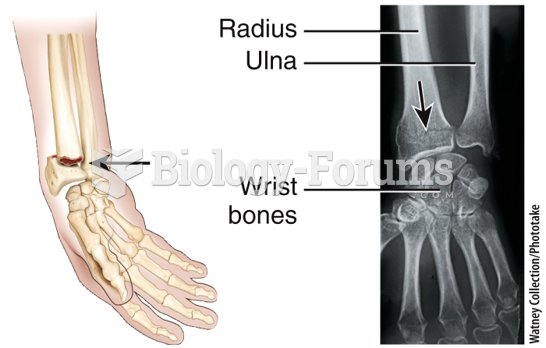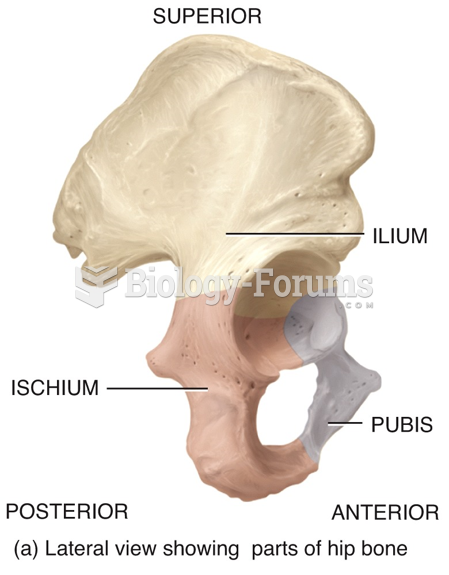|
|
|
Adolescents often feel clumsy during puberty because during this time of development, their hands and feet grow faster than their arms and legs do. The body is therefore out of proportion. One out of five adolescents actually experiences growing pains during this period.
The toxic levels for lithium carbonate are close to the therapeutic levels. Signs of toxicity include fine hand tremor, polyuria, mild thirst, nausea, general discomfort, diarrhea, vomiting, drowsiness, muscular weakness, lack of coordination, ataxia, giddiness, tinnitus, and blurred vision.
Fewer than 10% of babies are born on their exact due dates, 50% are born within 1 week of the due date, and 90% are born within 2 weeks of the date.
The human body's pharmacokinetics are quite varied. Our hair holds onto drugs longer than our urine, blood, or saliva. For example, alcohol can be detected in the hair for up to 90 days after it was consumed. The same is true for marijuana, cocaine, ecstasy, heroin, methamphetamine, and nicotine.
Vaccines prevent between 2.5 and 4 million deaths every year.
 Vasectomy. (a) Vas deferens is located within the spermatic cord on both sides. (b) A small incision
Vasectomy. (a) Vas deferens is located within the spermatic cord on both sides. (b) A small incision
 A simple diagram of bone marrow progenitors. All of the cells listed can be transformed to become a ...
A simple diagram of bone marrow progenitors. All of the cells listed can be transformed to become a ...





